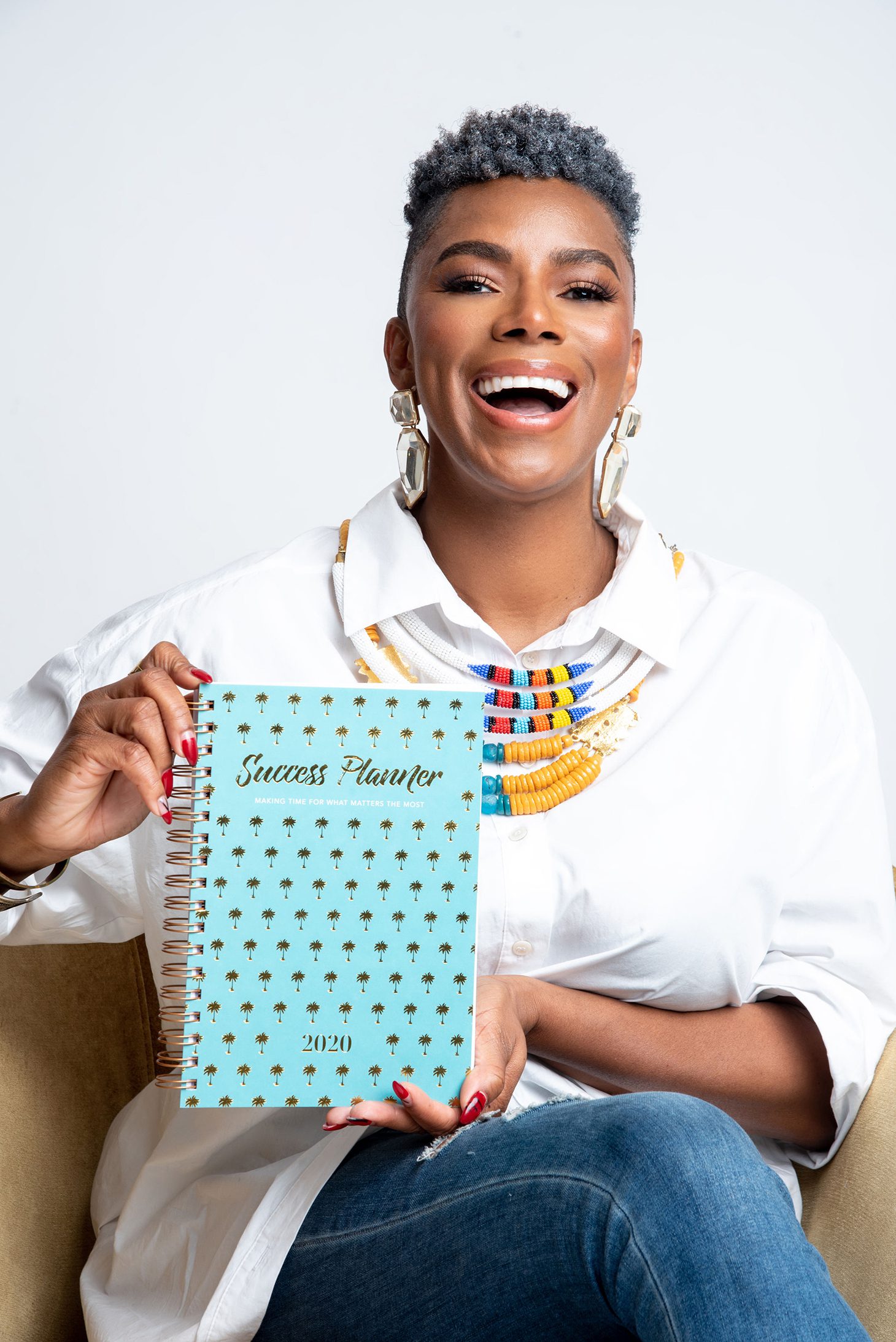Today, I am SO excited to welcome, Karlyn Percil, back to the blog. Karlyn is the CEO of KDPM Consulting Group is a Certified Emotional Intelligence and Neuro-Life Coach with a particular focus on Diversity, Inclusion, and Belonging. She is the Founder of The SisterTalk Group Leadership and Wellness Academy and Chief Executive Officer of KDPM Consulting Group INC. She is a former bank executive, who has dedicated her career to helping companies identify problem areas (known as “Elephant Stories”) that may interfere with an organization’s inclusion and human optimization goals. Further, she provides transformational tools, like The Success Planner, to help women, groups, and individuals increase their emotional and social intelligence in order to lead and live more meaningful and fulfilling lives. She is a former VP of the Black Business and Professional Association and held the Chair position of The Harry Jerome Awards for 5 years. She is most recognized for her multiple features on Oprah’s Lifeclass and mentions in Forbes and Essence and is a guest expert on Cityline.
Without further ado take it away Karlyn!
“The advancement of Black people requires protest and a seat at the table to make change real. Both are critical. And there is a lot of work to do. And it’s hard. And uncomfortable. But we need everyone, and we need all of it. #BlackLivesMatter”
– Arisa Cox, Host & Executive Producer, Big Brother Canada (featured mentor in the 2021 Success Planner)
This Black History Month, I invite you to think differently about what it means to honour and celebrate the advancement of Black people.

Here’s why.
We tend to think about Black History Month solely through the lens of history–the systems of oppression and supremacy that have negatively impacted Black lives and the ongoing, 400-years long, relay-like marathon for justice. While we know that if we don’t learn about Black history, we cannot learn from it, but the hope is that as we learn and unlearn, those who hold the systemic, leadership, and white privilege wil trade some of that unearned privilege and use their sphere of influence to impact Black futures positively.
This year as we leave Black History Month, I invite you to continue learning through action. I invite you to normalize the celebration of Black history 365 days of the year. Follow @ByBlacks – a great way to normalize Black presence in your life online.
Because, the Canadian History you learned in schools was written by and through a Eurocentric lens, which means it excludes the history of Black people in Canada. People who have been contributing to Canada’s History for the past 400 years long before Canada was Canada. This is why this Black History Month, I invite you to move beyond white Eurocentric knowledge and lean on your critical thinking skills to approach how you learn, unlearn, and celebrate Blackness here in Canada in new ways.As you move through this year, I encourage you to apply a critical thinking lens to the History you learned in school, the history your children are learning and use this approach to relearn Canadian history, including the regular contributions and the stories told by Black historians living and passed.
How can we look at Black history in Canada through a critical thinking lens? Critical thinkers use curiosity to challenge ideas and assumptions, leverage the power of their emotional data, and convert this intelligence into action through problem-solving.
Improving your critical thinking skills around Black history will require practice and intentional action. This is why focusing on only one month isn’t enough to develop the momentum needed to create a just and fair society, where all Black lives matter and are also prioritized.
Here are three ways you can (re)Think how you learn about Black history as you also make room and take action to celebrate it 365 days a year. Remember to use curiosity as your guide. Here is the #BlackHIA. Each step begins with self inquiry.

Black Presence
Ask yourself:
- Where am I NOT seeing Black contributions, voices, brilliance and expertise?
- As you watch your shows, shop for groceries, purchase products, courses, well-being offerings, ask yourself where in your life can I normalize Black presence?
- What are the current Black voices, events, issues, celebrations, and conversations that I can learn from, invite to, recommend, promote, amplify, collaborate with, share, donate to, etc.
Black His, Her’s and Their’s Story
Challenge yourself:
- What don’t I know about Canadian Black History? Who I am learning with? What do I need to unlearn? or relearn?
- Whose voice am I prioritizing? Are all the Black folxs I am listening to cis-gendered? Who are the Trans, LGBTQ folxs I am learning from? How does the work of these folx influence or impact my work?
- Am I giving credit to the right voices? Whose work do I quote or retweet, who am I listening to (are you learning from a multitude of Black scholars, stories, music, books, creatives, and people, or reading the one-sided account through the lens of the white gaze? Are you learning from Black History through the lens of the oppressor?)
Black Futures
Interrogate your actions:
- What kind of future am I creating?
- How am I contributing to the inclusion and normalization of Black presence, Black His, Her, and Their stories, as I participate in my purpose, interests, community, and the various systems of health, police, workplace etc.?
- What parts of my unearned systemic/cultural/white privilege am I willing to trade in order to create a future and a legacy I want my children and loved ones to be proud of?
- Who and what programmes am I sponsoring, championing and advocating for?
Now that you’re grounded in the approach, let’s put it all into practice. Step into my Inclusive Black History 365 Leadership Simulation Lab:
Black Presence in Action
Jillian Harris is trying to normalize Black presence–that is why I am here today sharing my voice, brilliance and perspectives with you as a guest contributor offering a Black lens on Black History Month. Normalizing Black presence means that Black History Month isn’t and won’t be the ONLY time you will see me or hear my voice on this blog this year.
Black His, Her’s and Their’s Story in Action
I first met the trailblazing Dr Jean Augustine when I volunteered with the Black Business and Professional Association Harry Jerome Awards. She immigrated to Toronto from Grenada at the age of 23 and, through her hard work, became the President of the Congress of Black Women of Canada. Through her political work, she influenced Canada’s official multiculturalism policy and became the first African-Canadian woman to be elected to Canada’s House of Commons, which she served on from 1993 to 2006. At the age of 83, Jean is still involved in the community and funds three annual scholarships. She did this all whilst facing down a history that taught those she encountered to discriminate against her and also fighting to ensure that we had a future we will be proud of through her contributions. Her ability to be curious, think critically, and apply new lenses helped lead her to where she is today.
Black Futures in Action
This is where I invite you to take action today and begin to contribute to Black futures. The Honourable Jean Augustine is calling on Canadians to step up and CREATE A BETTER Canadian History by ensuring that her incredible work and legacy lives on.
28 years ago, February was officially acknowledged as Black History Month in Canada. Dr. Augustine led the charge to make this happen, bringing forth a motion that was supported unanimously in Parliament!
I hope you use these Critical Thinking skills as a way to help mobilize not just for this month but for years to come. Practice them until justice has been served.
I’d like to leave you with the words of Dr Chika Stacy Oriuwa, a featured Mentor in the 2021 March Success Planner. This is from her poem (yes, she’s a poet too!) Woman, Black
“Can you be both doctor and Black woman?
I quickly say back,
I know of nothing else
but to become doctor in a world that begs otherwise
to be woman when my narrative is challenged
and my capabilities called into question
I will stand at the intersection of my
identities and boldly proclaim
I am woman
I am Black
I am doctor
and I am here.”
Remember, Black history is Canadian history.
Let me know what resonated the most for you in this post.





This entire Arti resonated with me. Thank you Karlyn for sharing your brilliance. Thank you Jillian and team for this amazing series. I’ve learned so much, I didn’t realized how starved I was for Black Canadian History – for so long I didn’t feel I held claim to this land. I was “other” an orphan lucky to be here with no roots beyond slavery and I’m learning more and more that’s not true. I love the end of this piece. Black history is Canadian history!